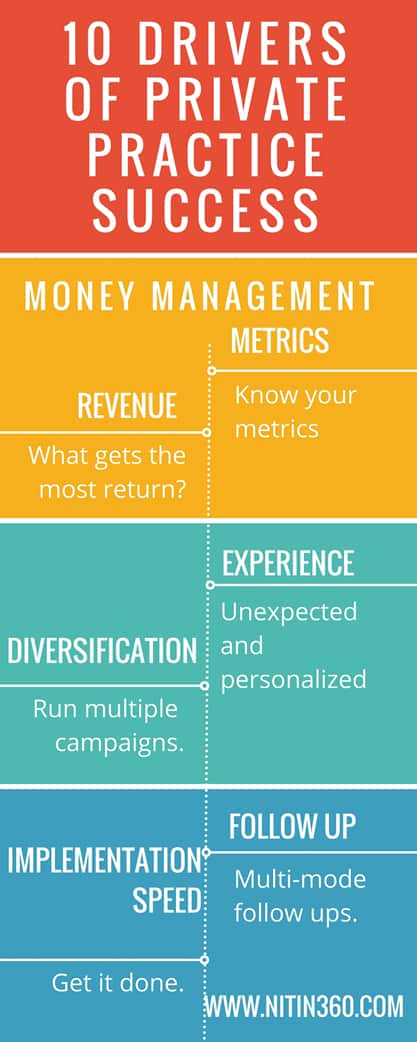I interviewed Don Tepper, editor of PT in Motion magazine yesterday about the health care reform bill. Don shared some of his thoughts and while these are just personal opinions from him, the interview will provide you with fresh insight into the impact of this bill on our profession.
Here is the transcript of the interview. You can also download a PDF version of the transcript by clicking here.
Nitin: Hi everyone, this is Nitin Chhoda, physical therapist with Nitin360.com. I’m glad that we have Don Tepper on the phone with us. Don is the editor of PT magazine and I am talking with him about the recent health care bill. While the dust has still to settle, we still don’t know the exact specifics of what impact this bill will have for private practice. I thought it would be interesting to get Don on the phone because he always sheds insight into a lot of matters. So Don, thank you so much for taking the time to speak with us today.
Don: Sure. Glad to be here. I want to update; the magazine is now known as PT in Motion but it had been PT magazine for seventeen years or so. Either name is fine, PT in Motion is the current name.
Nitin: All part of our new new branding efforts, correct?
Don: Absolutely, part of continuing change.
Nitin: Absolutely, and change is good. So, just to clarify to our listeners, this interview is in no way reflective of the law as it stands because at the time this interview is being recorded, there’s actually a lot of controversy about this health care reform bill and it is in no way reflective of the position taken by the APTA, as Don clarified to me at the beginning of this phone call. It is just the two of us trying to figure out exactly what impact this may have for private practice owners because it is definitely a landmark bill. Would you say that is a fair assumption Don?
Don: Oh absolutely, yeah, I mean it’s one of the most significant pieces of legislation that has been passed in decades. The fact that it directly affects health care is of prime importance to anyone involved in health care.
Nitin: Don, the first thing I was thinking was since this new bill effectively legislates that no individual can be turned down for health insurance including individuals with pre-existing conditions. I believe the impact this will have is insurance companies will have to pass on the cost or have to pass on the burdens somewhere and who better for them to pass on to than providers. So do you think this may lead to a further decline in reimbursements?
Don: That’s difficult to tell at this point because there are a variety of revenue raising provisions and legislation as well. From just my reading of the media coverage that was occurring prior to passage, it is assumed or hoped that by mandating total coverage, insurance companies would also be able to bring in healthier people who might not need as much coverage and therefore, rather than having to cover only those people who desperately needed coverage, insurance companies will have a broader base from which to draw fees. That in turn, may or may not, then again just kind of thinking out loud here, put additional pressures on them financially. I think that a concern is always whether change will result in reduced reimbursement but I don’t see that absolutely as being one of the outcomes here. I think it is something that PT’s have to be concerned with as they have been concerned with in the past.
Nitin: Do you think this kind of a bill makes it even more important for PT’s to differentiate themselves and specialize in certain niches? I like to think of it as going vertical into your field as opposed to going horizontal and not being one size fits all because this bill could increase the competition that we PT’s face from other practitioners simply because now, there are going to be more choices for patients and it is going to open up the market essentially. Do you have an opinion on that?
Don: Yes, I think that it will encourage that but I think that there will be a lot of additional opportunities for PT’s to explore their niches. The reason for that is that it is projected that 30 some million additional people will be covered by insurance and this will expand the entire pool of potential patients and clients that PT’s will have and realistically will expand that pool. That may mean that certain niches that previously had been considered to be too narrow in certain areas, just not enough patience for a particular area of expertise, with the injection of 30 some million additional patients may now make those niches and even niches that aren’t being explored at all more likely and more productive.
Nitin: Yes, speaking of niches, I don’t know if you are aware but my wife and I were talking about this. My wife is also a PT. She was talking about the government proposing to invest 11 billion dollars over the next five years in community centers that provide quality care and preventive programs. This could potentially, and we know President Obama is a big fan on prevention, this could potentially open up a whole new market for preventive programs that PT’s can provide in community centers. Is that something you have thought about or are aware about?
Don: Yes. One of the notes that I had made prior to this phone call is provision in the legislation that new health plans must cover preventive care and check-ups at no charge and all plans will be subject to the requirement by 2018. I see a couple of things coming together in this; one is the legislation, putting additional emphasis on preventive care; second area being President Obama and his wife’s own concerns with preventive care and the increased health of citizens. These two seem to be coming together at a particularly appropriate time offering practitioners who are interested in offering variations of preventive care – lot of new opportunities.
Nitin: This could definitely open up more avenues. The insurance companies will also be forced to cover dependents until the age of 26 as opposed to the age of 21. Do you think that might affect PT’s in any way?
Don: Well certainly. Again, just thinking out loud here. Any additional coverage offers more opportunities for people to receive quality of care and the nature of care that they need and to the extent that children, young adults who previously would not have been covered are now covered, either through their parent’s plan through that age or through mandatory coverage that offers additional opportunities. Now the additional opportunities typically with younger adults are going to be quite different than those PT’s who are offering services to patients who are older or patients with other conditions that may be age related. This could, again just speculating, broaden the opportunities for PTs who are involved in the areas of sports or health prevention as a person migrates from being a child and a teenager through adulthood. This group of people typically has chosen less often to be insured because they are typically healthier and they have less need to be insured and thus to have health coverage. The fact they will be covered now does offer PTs and health care providers in general a lot more opportunities to develop programs or expand programs that are aimed at this age group.
Nitin: And when you say develop programs, Don, I’m assuming you are talking of not just treatment and post rehab stuff, you are actually talking about the potential for preventive programs. A PT may and it would be nice because I have always been an athlete myself, could theoretically if the law allows it, if the legislation allows it, design a preventive program for let’s say, a basketball player, and provide that as a program.
Don: Sure absolutely. People have played sports in high school or college and wish to continue it. Playing soft ball, involvement in martial arts, a wide variety of things. There are people who want to remain active, wish to remain active but want to do it in a way that doesn’t injure their body. That’s certainly an area of opportunity for PTs.
Nitin: Yes, if it does come to that and I hope it does, it is going to significant and I think PTs then need to position themselves and market themselves to appeal to that market. By the time the marketing effects begin, we are in a position to provide that service and get reimbursed for it. A lot of changes the plan suggests are going to kick in in 2014. Some of them will actually kick in right now. Do you have an opinion on any actions that PTs can take right now to position themselves or do you think this going to be more of a long term bet? I do believe a lot of the effects are going to kick in in about four years.
Don: Right, 2014 is a critical date but there will be changes that are mandated by the legislation prior to that. In any case though, I would certainly urge PTs to take immediate action to learn as much as they can about the legislation, about the implications of legislation. Not just for them and for reimbursement but on their current patients and clients as well as their potential patients and clients. It would not be advisable to wait until 2014 for example and then ask oneself, okay, what do I do now to respond to the new legislation, the new provisions in legislation. The time to act really is now.
Whether that means, for instance, in some cases, PTs might decide that they want to pursue certification in a specialty field. There’s adequate time to do that to be positioned by 2014. There will be unintended consequences of legislation too and I think PTs have to be aware and sensitive to that and not just assume that what is written now is what will occur on a specific day in 2014. There will probably be shifts in patient and client behavior in practices; there will be other changes that will be occurring. So the sooner one gets involved in understanding the broad brushes of the legislation as well as areas that directly affect them and their patients, the better they will be able to respond to those and to have programs in place and services in place when the changes actually do take effect.
Nitin: One final question. I think probably the most significant aspect of the plan is that the plan is intended to increase individual responsibility which means each patient will be responsible for a percentage of the fee that they pay to a practitioner based on income and essentially, each person will share the cost of covering the whole country. Health insurance is pretty much going to be mandated so on the one hand, reimbursement may or may not go down but as we discussed earlier, visits may definitely increase. My question is, if a patient now has a financial responsibility in his own health and has to set aside a certain amount of money for health insurance and/or have a certain copay, do you think this can actually be a trigger for more cash based physical therapy? The way I look at it is if a patient is now being conditioned by the government to set aside money for health care, they will be more likely to purchase cash based physical therapy services. What is your opinion?
Don: It is difficult to tell but I personally think that transparency is preferable in that if a person is receiving health care, that person could know what the value is, what the cost is and thus be more sensitive to those issues. Right now, that is largely missing in health care. I think that to the extent that a patient has better sense of what he or she is truly paying for either out of pocket or through coverage, the better that is and the more informed decision the patient can make. That’s not arguing either the patient will choose less coverage or more coverage, we can see in certain areas that are somewhat related to health care. People who go to exercise programs who go to massage therapists, who choose to do certain things like that, they know what they are paying and they can make an informed intelligent decision about that choice, to the extent that a patient can make that same decision as we get closer to the heart of health care within physical therapy, the better that will be. As we are seeing from other areas, patients are willing to pay out of pocket if they perceive a value and I think one of the keys for physical therapists moving forward, is to be able to demonstrate that value into the mind of the patient so that the patient understands what he or she is receiving, what the benefits are and why physical therapy is such a good value. With that, laying the ground work for that, there shouldn’t be any problem.
Nitin: I see. Well Don, thank you so much for taking the time to speak with me. A lot of insight, a lot of food for thought as usual.
Don: Thank you.
Nitin: And I do appreciate you taking the time from your busy schedule to speak with me and speak with us at the last moment and I do want to reiterate that this is just a conversation between us as we figure out the impact of this health care reform bill. It is no way representative of the thoughts of APTA or the interpretation of the legislature which is actually being contested right now since this whole thing is a source of passionate debate. Don, did you want to add any final thoughts before we wrap up the call?
Don: Just probably to reiterate a point that I made earlier which is that at this point, we only know the bare bones of the legislation. There’s a lot in there that we don’t understand. There is also a lot in there that we don’t know the implications of and we don’t know how various components will play off of each other. For that reason, I think that any one involved in health care has to keep monitoring the situation, has to keep on top of what’s going on, has to be nimble in adjusting their services, their activity, their education, their whole approach to recognize that what we have got today may not be what we have tomorrow or next year or a decade from now but even what appears in this legislation may be altered in ways expected or unexpected. The best way to deal with that is simply to be aware of that and to be prepared to make whatever changes one feels is appropriate.
Nitin: That’s right. Don, thank you so much again and I will talk to you soon.
Don: Okay, very good. Very good sharing my thoughts with you.
Join us for the #1 Rated Physical Therapy Business Conference in the Country.
www.ignitionevent.com <——— Click here to secure your tickets before the price goes up.
September 23, 24, 25 in San Diego, CA.
Tickets are 65% off for a limited time.
We only have a certain amount of tickets available at this price, so
CLICK HERE TO SECURE YOUR SEAT







